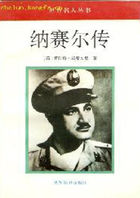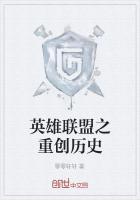"For learning and manners, Amyas, there's not his equal; and the queen may well love him, and Devon be proud of him: but book-learning is not business: book-learning didn't get me round the world; book-learning didn't make Captain Hawkins, nor his father neither, the best ship-builders from Hull to Cadiz; and book-learning, I very much fear, won't plant Newfoundland."However, the die was cast, and the little fleet of five sail assembled in Cawsand Bay.Amyas was to go as a gentleman adventurer on board of Raleigh's bark; Raleigh himself, however, at the eleventh hour, had been forbidden by the queen to leave England.Ere they left, Sir Humphrey Gilbert's picture was painted by some Plymouth artist, to be sent up to Elizabeth in answer to a letter and a gift sent by Raleigh, which, as a specimen of the men and of the time, I here transcribe*--"BROTHER--I have sent you a token from her Majesty, an anchor guided by a lady, as you see.And further, her Highness willed me to send you word, that she wisheth you as great good hap and safety to your ship as if she were there in person, desiring you to have care of yourself as of that which she tendereth and, therefore, for her sake, you must provide for it accordingly.Furthermore, she commandeth that you leave your picture with her.For the rest Ileave till our meeting, or to the report of the bearer, who would needs be the messenger of this good news.So I commit you to the will and protection of God, who send us such life and death as he shall please, or hath appointed.
"Richmond, this Friday morning, "Your true Brother, "W.RALEIGH."* This letter was a few years since in the possession of Mr.
Pomeroy Gilbert, fort-major at Dartmouth, a descendant of the admiral's.
"Who would not die, sir, for such a woman?" said Sir Humphrey (and he said truly), as he showed that letter to Amyas.
"Who would not? But she bids you rather live for her.""I shall do both, young man; and for God too, I trust.We are going in God's cause; we go for the honor of God's Gospel, for the deliverance of poor infidels led captive by the devil; for the relief of my distressed countrymen unemployed within this narrow isle; and to God we commit our cause.We fight against the devil himself; and stronger is He that is within us than he that is against us."Some say that Raleigh himself came down to Plymouth, accompanied the fleet a day's sail to sea, and would have given her majesty the slip, and gone with them Westward-ho, but for Sir Humphrey's advice.It is likely enough: but I cannot find evidence for it.
At all events, on the 11th June the fleet sailed out, having, says Mr.Hayes, "in number about 260 men, among whom we had of every faculty good choice, as shipwrights, masons, carpenters, smiths, and such like, requisite for such an action; also mineral men and refiners.Beside, for solace of our people and allurement of the savages, we were provided of musique in good variety; not omitting the least toys, as morris-dancers, hobby-horses, and May-like conceits, to delight the savage people, whom we intended to win by all fair means possible." An armament complete enough, even to that tenderness towards the Indians, which is so striking a feature of the Elizabethan seamen (called out in them, perhaps, by horror at the Spanish cruelties, as well as by their more liberal creed), and to the daily service of God on board of every ship, according to the simple old instructions of Captain John Hawkins to one of his little squadrons, "Keep good company; beware of fire; serve God daily; and love one another"--an armament, in short, complete in all but men.The sailors had been picked up hastily and anywhere, and soon proved themselves a mutinous, and, in the case of the bark Swallow, a piratical set.The mechanics were little better.The gentlemen-adventurers, puffed up with vain hopes of finding a new Mexico, became soon disappointed and surly at the hard practical reality; while over all was the head of a sage and an enthusiast, a man too noble to suspect others, and too pure to make allowances for poor dirty human weaknesses.He had got his scheme perfect upon paper; well for him, and for his company, if he had asked Francis Drake to translate it for him into fact! As early as the second day, the seeds of failure began to sprout above ground.The men of Raleigh's bark, the Vice-Admiral, suddenly found themselves seized, or supposed themselves seized, with a contagious sickness, and at midnight forsook the fleet, and went back to Plymouth;whereto Mr.Hayes can only say, "The reason I never could understand.Sure I am that Mr.Raleigh spared no cost in setting them forth.And so I leave it unto God!"But Amyas said more.He told Butler the captain plainly that, if the bark went back, he would not; that he had seen enough of ships deserting their consorts; that it should never be said of him that he had followed Winter's example, and that, too, on a fair easterly wind; and finally that he had seen Doughty hanged for trying to play such a trick; and that he might see others hanged too before he died.Whereon Captain Butler offered to draw and fight, to which Amyas showed no repugnance; whereon the captain, having taken a second look at Amyas's thews and sinews, reconsidered the matter, and offered to put Amyas on board of Sir Humphrey's Delight, if he could find a crew to row him.
Amyas looked around.
"Are there any of Sir Francis Drake's men on board?""Three, sir," said Yeo."Robert Drew, and two others.""Pelicans!" roared Amyas, "you have been round the world, and will you turn back from Westward-ho?"There was a moment's silence, and then Drew came forward.
"Lower us a boat, captain, and lend us a caliver to make signals with, while I get my kit on deck; I'll after Captain Leigh, if Irow him aboard all alone to my own hands.""If I ever command a ship, I will not forget you," said Amyas.
"Nor us either, sir, we hope; for we haven't forgotten you and your honest conditions," said both the other Pelicans; and so away over the side went all the five, and pulled away after the admiral's lantern, firing shots at intervals as signals.Luckily for the five desperadoes, the night was all but calm.They got on board before the morning, and so away into the boundless West.** The Raleigh, the largest ship of the squadron, was of only 200tons burden; The Golden Hind, Hayes' ship, which returned safe, of 40; and The Squirrel (whereof more hereafter), of 10 tons! In such cockboats did these old heroes brave the unknown seas.















